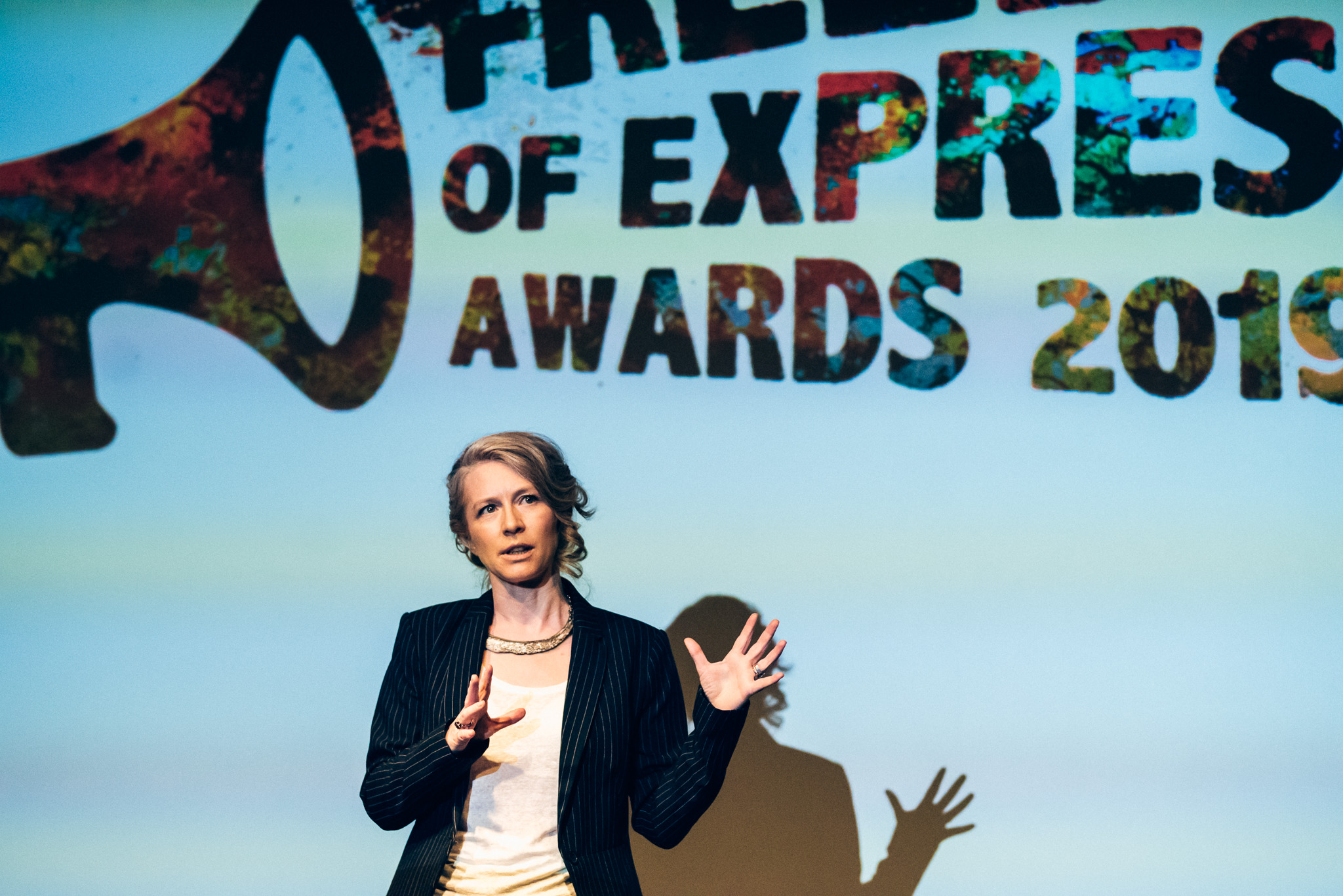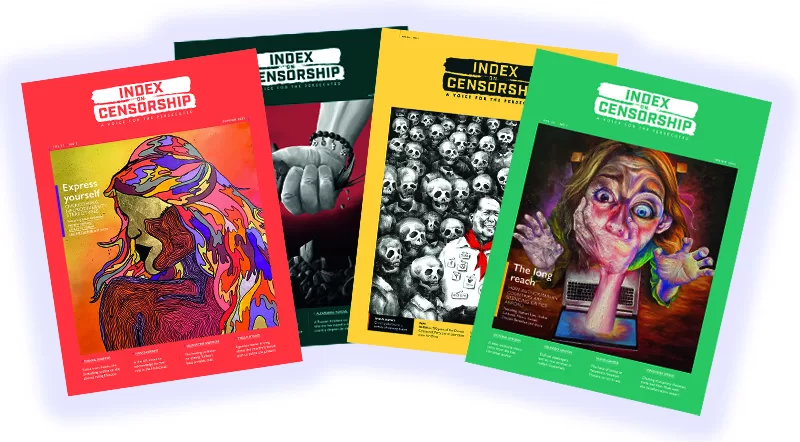[vc_row][vc_column][vc_single_image image=”105876″ img_size=”large”][/vc_column][/vc_row][vc_row][vc_column][vc_column_text]14 February 2020 – Valentine’s Day – marks my last day at Index on Censorship after nearly six years at the helm. It feels apt, then, to share how passionate I am about – free speech and the organisation that has spent nearly 50 years defending it.
Let’s start with freedom of speech. When I started at Index, I have to confess I was an armchair enthusiast. I believed in freedom of speech, of course I did – or so I thought. After all, I was a journalist. I’d worked in countries like South Africa and Ireland that had experienced – in differing forms – decades of formal censorship and centuries of informal silencing.
But what I came to realise very quickly is that while support for free speech is easy in theory, in practice it is much, much harder.
What I love about Index is we never pretend otherwise. For us, the work we do is not about defending free speech in principle, but demonstrating how and why it is so important in reality. We don’t pretend we have all the answers instantly. In a world that expects immediate responses, the pressure to provide the answer at once is huge. But we have learned that sometimes we need to say: “Hmmm, we need to think about that one.”
We have wrestled with questions that stretched from whether or not social media platforms should show beheading videos to the question of the Northern Irish bakery asked to ice a cake with words with which they disagreed. We debated the point at which hateful speech amounts to incitement to violence. We tried to address the notion of words that cause harm.
Being thoughtful doesn’t always win you headlines but it’s crucial if you want to convince those who doubt your arguments. I love that Index thinks.
I love that Index has courage. We believe passionately that everyone should have the right to speak freely – and that includes defending the rights of those with whom we profoundly disagree – or whom others find shocking, disturbing and offensive. Never in my wildest dreams did I imagine that I would find myself defending the right of a Scottish YouTuber to teach his girlfriend’s dog to do a Nazi salute. Thankfully, we were not alone.
Sadly, those who defend freedom of expression often are. It was something we fought to counter when we spoke out in defence of Charlie Hebdo – and that experience – of sticking our heads above the parapet when many others would not was a formative experience for me as a relatively new Index CEO.
We are not the courageous ones, though. The courageous ones are those who speak out in the knowledge that they could face dire consequences for doing so.
Free speech is the Turkish playwright Meltem Arikan voicing the pain of exile and the delights of creating a new home in a new language. Free speech is artist Luis Manuel Alcantara, inviting repeated arrest for refusing to make government-sanctioned art in Cuba. Free speech is Zimbabwean activist Evan Mawarire calling for a compassionate government that protects its people. Free speech is journalists like Carole Cadwalladr, Caroline Muscat and Maria Ressa defying attempts to silence them. Free speech is Nabeel Rajab exposing torture in Bahrain’s jails – speech for which he himself was jailed. Free speech is a young Saudi woman appealing for asylum and finding her cause taken up by thousands around the world. Free speech is every one of our brilliant Index on Censorship fellows.
It is also speech that hurts. It is speech that is raw, shocking, offensive – that demeans and diminishes others. In my time at Index we have had to defend words and viewpoints that I abhor. In so doing we have been accused of sharing and condoning those views – of allowing them to become mainstream.
Defending that line is hard. But we do so because none of the examples we have seen of government bans or social media restrictions ends up achieving the outcome desired – one in which we are more tolerant of one another’s differences.
We believe there is an alternative to censorship. I am hugely proud that last year I was finally able to get off the ground a project close to my heart: our Free Speech Is For Me programme, which brought together activists in Britain and the United States to debate the value of free speech. Along the way, participants learned how better to listen to one another’s ideas. Some even changed their minds. One Brexit supporter told us they had even started reading The Guardian …
Words matter to us. I love that Index continues to produce a magazine that takes a global and long-term look at the issues we face and which publishes original work by leading writers. Where else could you read interviews with legends like Margaret Atwood or Ngũgĩ wa Thiong’o, writing by the likes of Elif Shafak, Xinran, or Ariel Dorfman?
I love that for an organisation with an impressive back catalogue, we nevertheless look forward. We are grappling with the thorny questions of regulating online speech and tough questions on hate speech and free speech in the workplace. I haven’t always got that right – but we have tried to learn how we can better be the change we want to see in the world.
Index is a small outfit, battling for funds against a million and one other worthy causes. When I started, someone told me we would never be able to compete against those raising money for life-saving healthcare. I don’t want to compete. But I believe more than ever – as we have seen with events recently in China – that life-saving healthcare depends on freedom of speech.
That is why I love this cause. And why I know Index will continue to defend it without fear or favour. And why your heartfelt Valentine vow should be to support it too.
[/vc_column_text][/vc_column][/vc_row]





